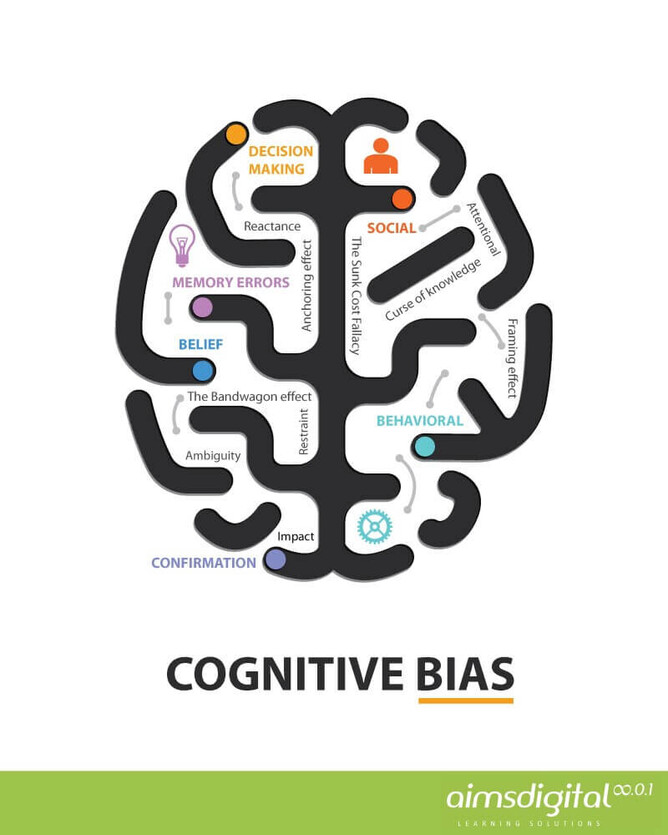The classic economic theory (which relates to investing) works on the basis that
1. Everyone is rational (investors and markets)
2. Investors have perfect self control
3. Investors aren't confused by any 'emotional' factors in the way that they think and reason
4. Investors process information efficiently.
This would work well if all investors and markets were robots, but it isn't true in reality.
In real life, investors are normal people with emotions, have limits on their self control, they make mistakes and they process information inefficiently or incorrectly.
One of the biggest issues in real life however, is our biases and how they impact on what we do.
Cognitive biases are those where our emotions (often subconsciously) get in the way of our rational decision making and our perfect self control. There are five key biases that we need to be aware of:
1.Confirmation bias. We tend to give more weight to information that supports our personal beliefs. An example could be investors who are committed to owning shares of a particular company (maybe because of an experience they have had with the company, because they know and like someone in the company, or they like the brand), and they ignore unfavourable news about the company.
2. Recency bias. It is easy to put too much emphasis on recent events. As advisers, this could be a representative of a fund manager contacting us to tell us about how great their fund is. This is why we have robust mechanisms for assessing the funds we use, and any 'new shiny thing' has to go through those processes. For investors this might be thinking that a market rally or downturn will just keep on going.
3. Gamblers fallacy. This is where the simple law of probability, say in a coin toss, is misinterpreted. If heads come up five times in a row, what are the chances of heads coming up again in the next toss. We know that the chance is still 50/50 (but the probability of having six consecutive heads is only 1 in 64.)
In investing, this could be investors thinking that because an investment has gone up and up, that the probability of it going up again is unlikely. Whereas in reality whether it will go up will depend on it's valuation and the profit and outlook for the investment.
4. Anchoring effect. This is when we make a decision based on the first bit of information we get, without doing more analysis. An example could be when a share price falls, we might be tempted to think it is a bargain, when in reality, a big lawsuit has just been announced against the company, or a big export order has just been cancelled, which lead to the fall in share price.
5. Herding effect Getting tips around the barbecue, going along with crowd. A perfect example of this was the rapid increase in the price of Gamestop shares, when the crowd on Reddit and other social platforms talked about it being a good investment.
Emotions can very easily get in the way of a robust and rigorous approach to investing. That is why Moneyworks have built systems and frameworks to analyse the investments we recommend, to reduce the emotional bias as much as possible.
It is also our job to help our clients in dealing with the emotional impact and biases in relation to their investing. We attend a Finology conference each year to keep up to date with information on biases and to remind ourselves how these can impact our work.


